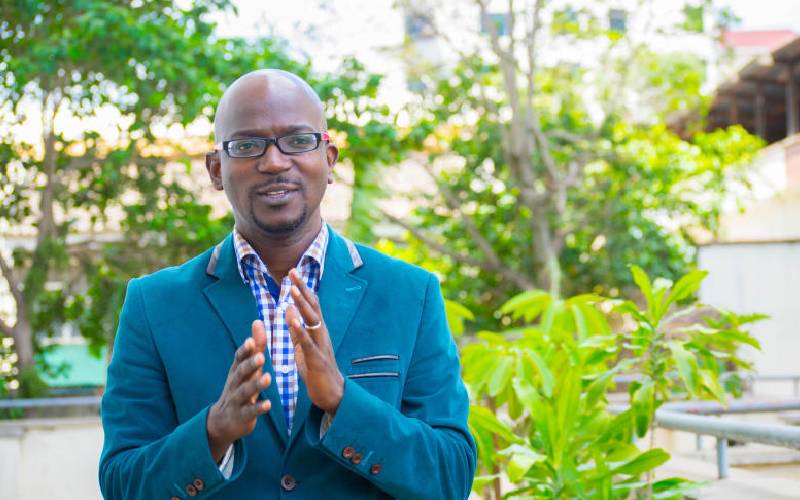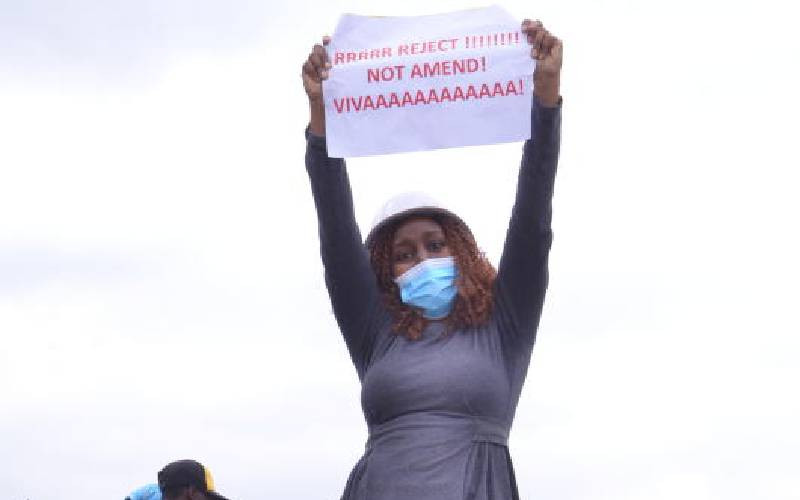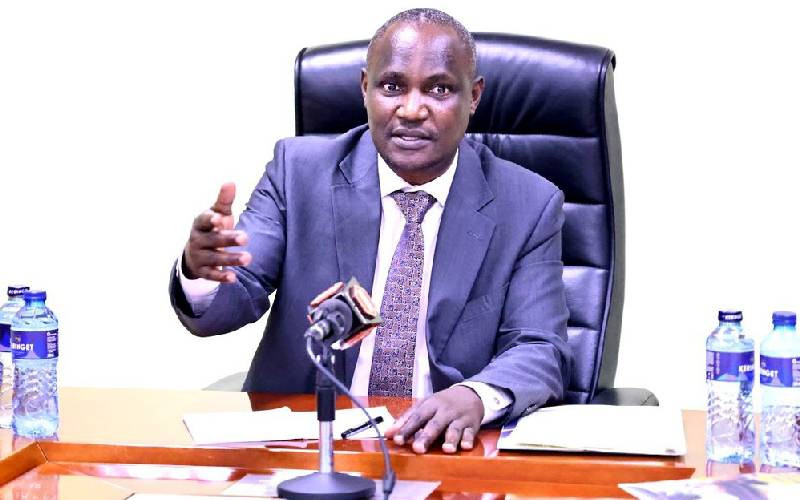
In 2013, Jan Okonji (pictured), tried his hand in business by creating a mobile application that he hoped to monetise. But after two years, he failed spectacularly, losing his capital investment of more than Sh3 million as well as a big deal worth over Sh30 million. However, the certified mental therapist picked up the pieces, restarted his business using the very lessons that led to his failure. With a renewed mindset, Okonji, who now runs Business Growth Solutions, a business consultancy firm, has trained hundreds of start-ups and SMEs. He shares some of these hard lessons with up-and-coming entrepreneurs.
Tell us about your first investment?
I actively got into consultancy, mentorship and coaching business for startups and SMEs business in 2013. By ‘actively’ I mean the venture was not to be a side hustle, a subsistence venture or some hobby, but something I wanted to do on a full-time basis. One of the first products I developed was a free-to- download interactive mobile application that cost me about Sh3 million to develop. I also put aside about Sh150,000 for my personal training and networking events, Sh30,000 for setting up the website and about Sh10,000 in buying a few books on my areas of passion. The money was from my personal savings from my time in employment. I did not initially focus on office space or staff since I was more interested in growing my personal brand first.
What were your aspirations when you started out?
I set out to develop the largest, most impactful business consultancy firm in Africa, a firm that not only trained small businesses to be profitable and scalable, but that had a solid financial backing. My target was to impact 10 million people across Africa within the first 10 years of registering the business. I also aspired to mentor the most influential future entrepreneurs in Africa. But then things went south.
How?
The app did not take off as envisioned. I was deflated financially and morally. I missed out on an opportunity to sell the app for Sh30 million to a prospective buyer since I believed I could better monetise the app on my own. I was new to this environment and did not understand the language of international investors. The dent in my finances meant an adjustment to my immediate lifestyle. I also fell into heavy debt. After just two years as an entrepreneur, I temporarily closed my consultancy business and focused on seeking employment, which I also failed to secure. During this time, I was fortunate enough to lean on some personal savings. A lot of self-doubt crept in. I was not sure if entrepreneurship was for me. However, a call from a referral client lit up my desire to get back into entrepreneurship.
Looking back, what led to the failure?
First, I had a poor business mindset, or the inability to adjust my knowledge with regard to the new terrain. Perhaps it was due to feelings of entitlement, pride and arrogance which in turn prevented me from learning from my mistakes in time. Secondly, I did not change the circle of friends and worse still, I lacked a business mentor. We are the average of the five people we associate with and the best way to adjust yourself to a new way of living is by adjusting this circle. Third, much of my business strategy was theoretical and culled from academic knowledge, corporate theories and a lot of internet boloney. I now know that the best business strategy is one that has been tried and tested through failure, one that is practical and relevant to the stage you are in entrepreneurship.
What key lessons did you learn from that failure?
The biggest one is that failure is not your enemy nor is it final. Failure is the means by which you realise success. Failing and quitting are not the same thing. Did I conclude that business was not for me? Many times! To this day I still have self -doubts. The difference is that these days I do not let my thoughts alter my core beliefs. I may doubt for a brief moment, but then I dust myself off and get back at it.
What helped you pick up the pieces and move on?
Through mentorship, mindset, and action. My mentors helped me access exclusive training and networks that I otherwise would not get on my own. One of my mentors introduced me to meditation as a way of dealing with anxiety from business, a crucial step in stress management during challenging moments. My research on mindset has helped me develop daily rituals that I follow to get my mind ready for an uncertain business environment. This includes my daily diet, sleeping patterns and affirmations. I have invested tens of thousands of hours studying mindset books to the point of becoming a certified mental therapist, working with people to understand their thinking and behavioral patterns. Anyone desiring a strong mind should keep a journal, or a daily log of life experiences and learnings. Finally, action is the cure for all. When one is going through failure, the automatic reaction is to go into an inactive state. To stay in bed, eat junk food, wallow in alcohol or watch movies endlessly. Such actions make one spiral deeper into isolation. Instead, work out, take a walk, meditate, read an amazing book, invest in a monetisable skill, watch a documentary.
What is your current business model?
Today, I am run a business consultancy firm, Business Growth Solutions. I have also partnered with SNDBX Kenya, a Pan African business development hub that works with over 25 business experts to offer affordable, high impact business support services to business owners, all under one roof. I am the resident startup expert at the SNDBX.
Through my consultancy and partnerships with others like SNDBX, I have developed various points of action to coach entrepreneurs on the right business ways. We do this through webinars, training programmes, masterclasses, e-books and one on one consultations. We currently run such training programmes virtually due to the pandemic but plan to move them to a full physical training at the SNDBX offices in Kilimani.
 The Standard Group Plc is a multi-media organization with investments in media
platforms spanning newspaper print operations, television, radio broadcasting,
digital and online services. The Standard Group is recognized as a leading
multi-media house in Kenya with a key influence in matters of national and
international interest.
The Standard Group Plc is a multi-media organization with investments in media
platforms spanning newspaper print operations, television, radio broadcasting,
digital and online services. The Standard Group is recognized as a leading
multi-media house in Kenya with a key influence in matters of national and
international interest.
 The Standard Group Plc is a multi-media organization with investments in media
platforms spanning newspaper print operations, television, radio broadcasting,
digital and online services. The Standard Group is recognized as a leading
multi-media house in Kenya with a key influence in matters of national and
international interest.
The Standard Group Plc is a multi-media organization with investments in media
platforms spanning newspaper print operations, television, radio broadcasting,
digital and online services. The Standard Group is recognized as a leading
multi-media house in Kenya with a key influence in matters of national and
international interest.










